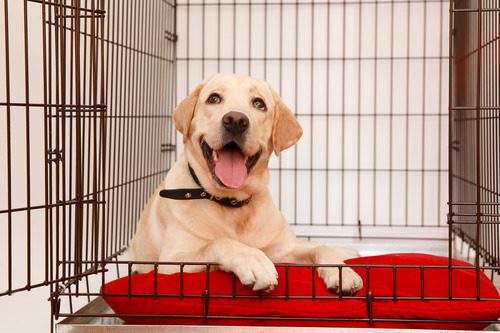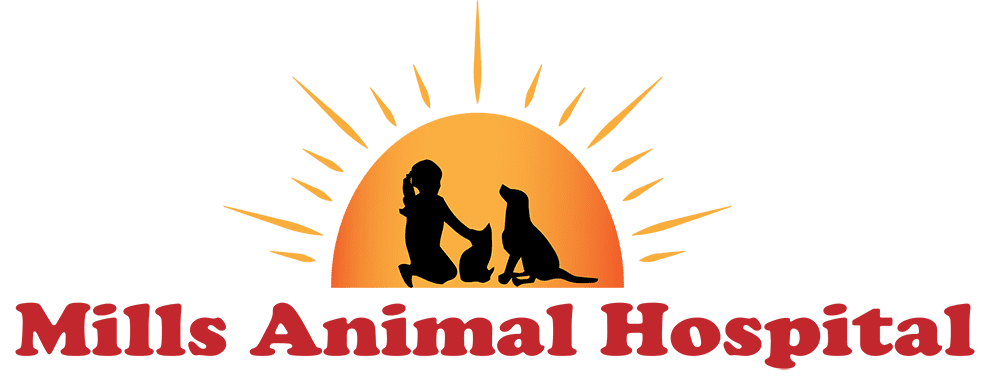Dog Boarding Requirements: What Vaccines Does My Dog Need for Boarding?
When you’re preparing your dog for a stay at a boarding facility, you’re not just packing their food and favorite toy—you’re also checking off important health requirements. Understanding dog boarding requirements ahead of time can save you from last-minute surprises and help protect your pet and others from contagious diseases. At Mills Animal Hospital in Acworth, GA, we frequently hear from pet owners wondering what vaccines their dogs need for boarding. Below, we’ll break down what to expect, which vaccines are commonly required, and why facilities have these guidelines in place. If you’re planning to board your dog soon, this information will help you feel prepared and confident.

Why Boarding Facilities Have Vaccine Requirements
Dog boarding requirements aren’t just about following rules—they’re in place to protect every dog that comes through the doors. When dogs from different households are grouped together, even briefly, the risk of spreading contagious illnesses increases. Vaccination requirements act as a preventive measure to reduce the risk of outbreaks and illness.
Standard Protocols Across Boarding Facilities
Most boarding facilities require proof of up-to-date vaccinations before admitting any dog. These policies help maintain a safe environment for dogs and staff. While some requirements vary slightly from one location to another, certain vaccines are considered standard due to the nature of how quickly these diseases can spread in group settings.
Planning Ahead to Meet Requirements
At Mills Animal Hospital, we recommend pet owners check boarding facility policies well in advance so they can schedule any necessary veterinary visits without stress. If you’re unsure about your dog’s current vaccination status or upcoming travel needs, please call us at (770) 903-5995.
Core Dog Boarding Requirements: Vaccines Your Dog Must Have
Every boarding facility has its own set of dog boarding requirements, but most share the same core expectations. These typically focus on preventing diseases that spread through respiratory secretions, direct contact, or contaminated surfaces.
Rabies
Rabies is required by law in Georgia and is a universal requirement for boarding dogs. This viral disease affects the nervous system and is fatal once symptoms appear. Because rabies is transmissible to humans, this vaccine is non-negotiable in all reputable facilities. Most facilities require proof that your dog is current on a one- or three-year rabies vaccine, depending on the type given.
Distemper-Parvo (DHPP)
This combination vaccine protects against several serious illnesses: distemper, adenovirus (hepatitis), parvovirus, and parainfluenza. Boarding facilities require the DHPP vaccine because these viruses are highly contagious and can live on surfaces for extended periods. Even if your dog doesn’t interact closely with others, the risk of exposure remains high in any shared environment. Many boarding facilities will not accept a dog unless this vaccine has been updated within the last one to three years. You can always contact Mills Animal Hospital at (770) 903-5995 to confirm if your pet is up to date.
Bordetella (Kennel Cough)
Bordetella bronchiseptica is one of the primary causes of kennel cough, a respiratory illness that spreads rapidly among dogs in close quarters. This is why the Bordetella vaccine ranks high on most dog boarding requirements. Some facilities accept intranasal, oral, or injectable versions of the vaccine, and booster timing can vary. While many facilities require the vaccine within the past 6 months to a year, others may request more frequent updates. Make sure to confirm the specific window required by your boarding provider.
Additional Vaccines Often Recommended or Required
Some dog boarding requirements include additional vaccinations depending on the region or the facility’s exposure risk. These vaccines might not be required everywhere, but many locations recommend or enforce them for the safety of all boarders.
Canine Influenza
Canine influenza is a highly contagious respiratory virus that spreads through airborne droplets. It causes symptoms similar to kennel cough but can result in more serious illness. Outbreaks occur sporadically across the country, and boarding facilities in affected areas may require vaccination. Even if it’s not currently mandated, the canine influenza vaccine may be recommended for dogs that board frequently or attend daycare. Ask your veterinarian whether this vaccine makes sense based on your pet’s lifestyle.
Leptospirosis
Leptospirosis is a bacterial infection that spreads through the urine of infected animals and contaminated water. It’s more common in outdoor environments but can be transmitted indoors if proper sanitation isn’t maintained. Because dogs can be exposed during group play, walks, or in yards shared with other dogs, some boarding facilities include the leptospirosis vaccine in their dog boarding requirements. It’s especially relevant in Georgia due to our humid climate and outdoor wildlife.
How to Prepare for Boarding Requirements
Once you’ve chosen a boarding facility, confirm their specific dog boarding requirements right away. Each facility may have slight differences in their vaccination policies, required documentation, and vaccine timing. Here are a few key steps to take before boarding your dog:
- Gather vaccine records. Most facilities require written proof of each required vaccine. Ask your veterinarian for a copy of your dog’s vaccination history or have it emailed directly to the boarding provider.
- Schedule a wellness exam if needed. If your dog is overdue for a vaccine, you’ll need time to schedule a veterinary visit. Some vaccines require a waiting period before they’re considered effective.
- Discuss your dog’s health with the vet. If your dog has a medical condition or reacts poorly to vaccines, your vet can help you navigate exemptions or provide a letter of explanation if the boarding facility allows it.
At Mills Animal Hospital in Acworth, GA, our team helps pet owners meet dog boarding requirements quickly and easily. We’re happy to answer questions about vaccine timing or provide the documentation you need. Give us a call at (770) 903-5995 to speak with a team member or schedule an appointment for your dog.
What Happens if My Dog Isn’t Fully Vaccinated?
If your dog hasn’t received all required vaccines, most boarding facilities will not allow them to stay. This policy protects all dogs on the premises and helps prevent the spread of disease. However, that doesn’t mean your travel plans are out the window. Many facilities work with pet parents to reschedule reservations after vaccines are updated. The required waiting period—often between 3 to 14 days—gives the vaccines time to become effective before your dog enters a group setting. This is especially true for Bordetella and canine influenza, where timing matters.
For dogs with limited vaccine history, the first round of shots may need a follow-up booster weeks later. Planning ahead gives you flexibility and keeps stress levels low. If you’re boarding your dog for the first time or it’s been a while since their last stay, call us at (770) 903-5995 so we can help you build a timeline that works for your pet and your schedule.
Why Planning Ahead Makes All the Difference
Meeting dog boarding requirements isn’t difficult, but it does take some advance preparation. Knowing which vaccines your dog needs—and when to get them—helps avoid last-minute complications. Whether you’re planning a vacation, facing an unexpected emergency, or scheduling a stay during the holidays, checking boarding requirements early puts you one step ahead.
At Mills Animal Hospital in Acworth, GA, we work with families every day to ensure their dogs are ready for boarding. Our team will review your dog’s vaccination history, recommend any updates, and provide clear records for your boarding provider. If you have questions about your dog’s vaccine status or upcoming boarding needs, please call us at (770) 903-5995. We’re here to help you prepare, so your dog can enjoy their stay safely and comfortably.
